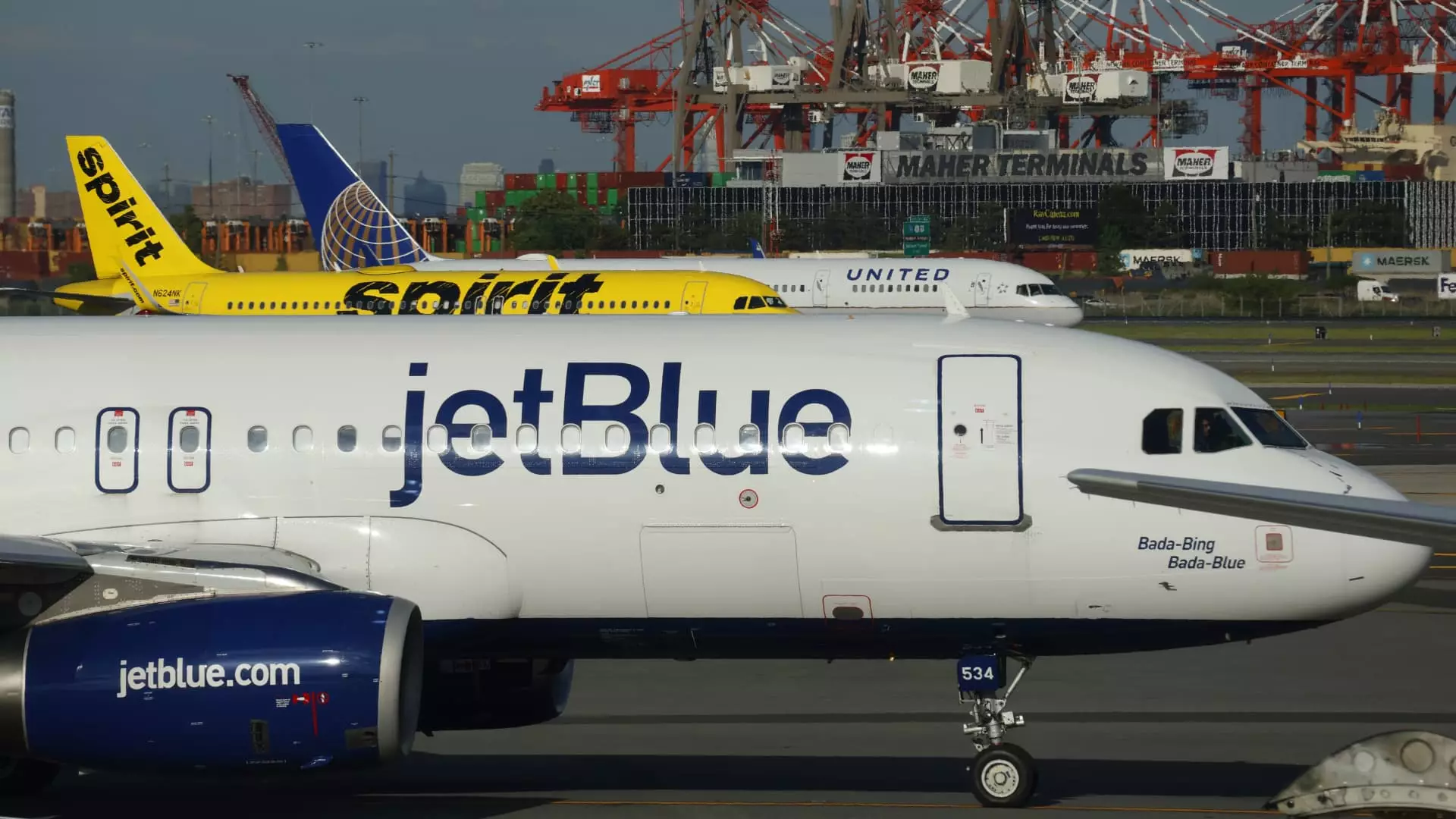In an effort to save money and return to profitability, many low-cost and deep discount airlines are now postponing the purchase of new aircraft. This strategic move is a result of the impact of engine repairs and an overall decline in revenue. Despite an influx of flights in the U.S. market, particularly in the domestic sector, ticket prices have decreased significantly. Companies like Spirit Airlines, JetBlue Airways, and Frontier Airlines are among those struggling to achieve profitability, with some carriers not turning a profit since 2019.
One of the key strategies implemented by these airlines is deferring deliveries of new aircraft. This decision allows companies to delay substantial upfront payments and adjust to the surplus supply of planes in the industry. For example, Frontier Airlines has deferred 54 Airbus aircraft deliveries to at least 2029. The hesitation to acquire new planes is also influenced by past delays in aircraft deliveries, which have caused an accumulation of orders among carriers. As a result, carriers like JetBlue Airways are estimating significant cost savings by postponing the receipt of new Airbus A321 airplanes through 2029.
The financial strain on airlines is further exacerbated by grounded jets due to engine recalls from manufacturers like Pratt & Whitney. Despite the need for additional planes for growth, many carriers are wary of accepting deliveries that may end up grounded. This dilemma creates a complex situation for airlines like Spirit Airlines, which are already facing deep financial losses. The company has decided to defer all Airbus planes on order until at least 2030, along with other cost-cutting measures like furloughing pilots.
The struggle to return to profitability is not limited to airlines alone. Aircraft suppliers like Boeing and Airbus are also facing challenges in increasing output. Issues such as skilled worker shortages and supply chain disruptions have hindered their ability to meet the demand for new fuel-efficient planes. Despite the scarcity mindset prevailing in the industry, lease rates for popular aircraft models like the Airbus A320 and Boeing 737 Max 8 continue to rise. Both suppliers are working to address production limitations while managing a post-Covid hangover that has disrupted the aviation industry.
Impact on Budget Airlines and Global Industry Trends
While low-cost carriers are deferring aircraft orders to cut costs and improve financial performance, the broader airline industry remains in a state of flux. Fuel-efficient planes are in high demand but in short supply, leading to record lease rates for aircraft like the Airbus A320 and Boeing 737 Max 8. To address financial constraints, some airlines engage in sale-leaseback agreements to generate cash flow. Both Boeing and Airbus are striving to meet customer demands and maximize fleet flexibility despite ongoing production challenges.
The airline industry’s struggle to return to profitability is evident through the deferral of aircraft deliveries and cost-cutting measures implemented by carriers. The financial impact of engine recalls, revenue declines, and overcapacity in the market has forced airlines to reevaluate their growth plans. As aircraft suppliers work to address production constraints and meet increasing demand, the industry as a whole faces complex challenges in navigating a post-Covid recovery. Airlines must balance the need for new aircraft with financial constraints to achieve long-term sustainability and profitability.


Napsat komentář